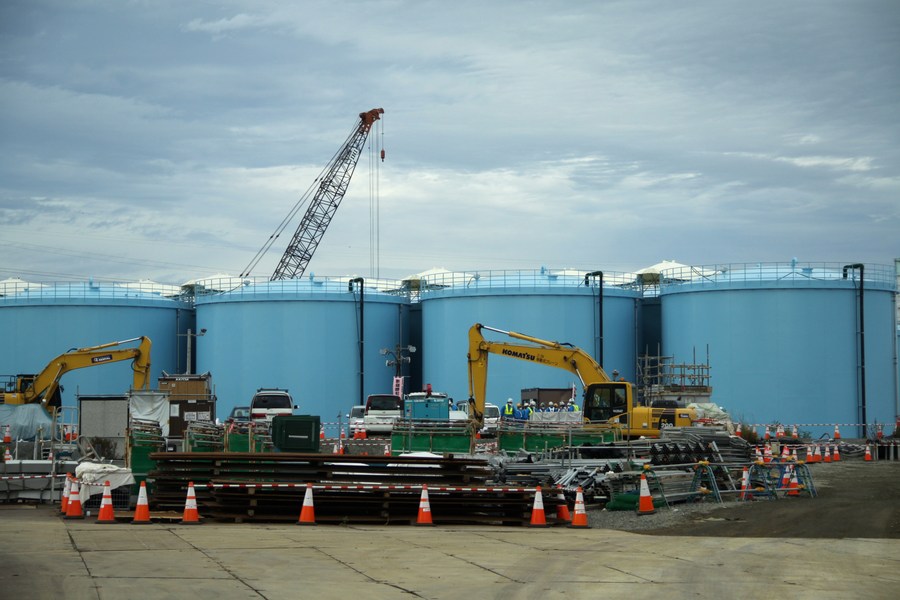
File photo taken on Oct. 12, 2017 shows huge tanks that store contaminated radioactive wastewater in Fukushima Daiichi nuclear plant, in Fukushima Prefecture, Japan. [Photo/Xinhua]
This is an editorial from China Daily.
On Friday, the Japanese Nuclear Regulation Authority officially approved Tokyo Electric Power Company's plan to release contaminated water from the damaged Fukushima nuclear reactors into the Pacific.
Japan's claim that it would treat the 1.25 million tons of radioactive water at the plant to make it safe before disposing of it is nonsense, and has long been refuted by scientists.
How to deal with the nuclear waste water in Fukushima is not just a private matter of Japan. It has been calculated that it will take only 57 days for the contaminated water to reach the other side of the Pacific and just 10 years to spread to every corner of the world.
It will take even fewer days to reach China and the Republic of Korea, as well as other countries neighboring Japan. Japanese fishermen, who rely on the harvest from the sea for their livelihoods, have protested the move as well as they will also be victims of the plan, and Japanese residents gathered at the Nuclear Regulation Authority office building in Tokyo on Friday to express their concern about its decision.
Since the plan has been met with fierce opposition both at home and abroad, a responsible nation would discuss with others the other options for disposing of the contaminated water with a view to identifying the best means to minimize the possible negative effects on the environment. Yet the Japanese government has adamantly refused to do so.
Upon announcing the plan in April 2021, Taro Aso, then Japanese deputy prime minister and finance minister, claimed that the contaminated nuclear water was "drinkable", yet he has never put a glass to his lips to prove the veracity of that claim.
The Japanese government also claimed they had an Advanced Liquid Processing System to remove the radioactive elements in the water before releasing it into the ocean, which was refuted by their recruiting technologies to get rid of tritium, a radioactive isotope of hydrogen in the water in June 2021.
They even claimed the release plan has the support of the International Atomic Energy Agency. Yet the IAEA has raised doubts and challenged the plan.
ROK environmental protection organizations have even said the plan is like "a nuclear terrorist attack". According to the United Nations Convention on the Law of the Sea, to which Japan is a party, every nation is obliged to protect the sea and the ocean.
If Tokyo presses ahead with its irresponsible act, the affected countries have every right to claim compensation for their losses through legal means.
Japan has caused enough trouble to the world in history. It should not make that record longer.

 中文
中文



